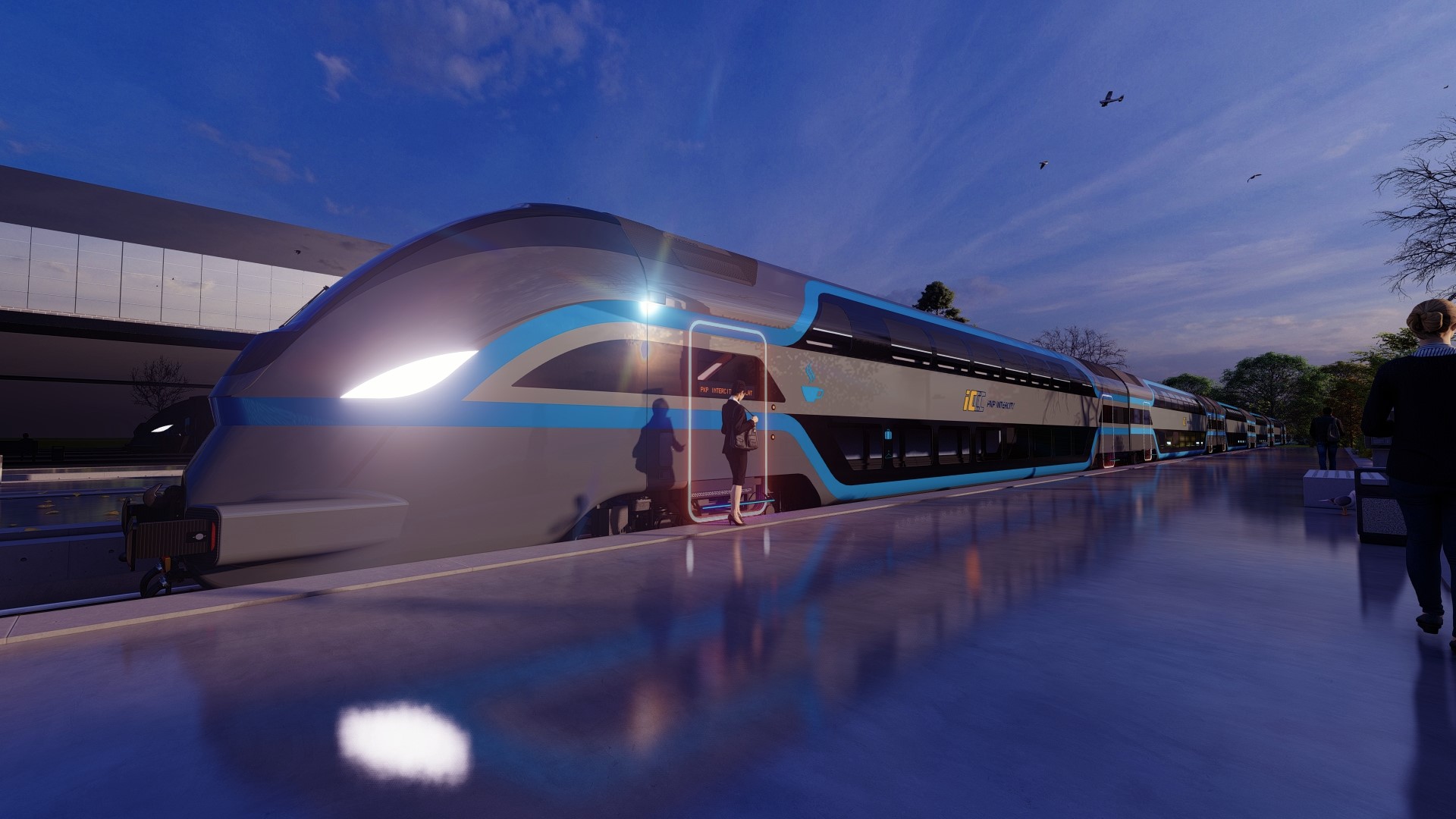 H.Cegielski – Fabryka Pojazdów Szynowych and Newag are the two rolling stock manufacturers that have submitted their bids for PKP Intercity tender covering the purchase of 300 new long-distance coaches which includes an option for 150 additional units.
H.Cegielski – Fabryka Pojazdów Szynowych and Newag are the two rolling stock manufacturers that have submitted their bids for PKP Intercity tender covering the purchase of 300 new long-distance coaches which includes an option for 150 additional units.
According to the tender which was launched in November 2022, all carriages should be delivered within 96 months of the contract signing.
PKP Intercity has estimated that the contract is worth PLN 2.84 billion (EUR 648.6 million) and with the exercised option, the value will reach PLN 4.2 billion (EUR 973 million).
The Polish rail operator has entered the next stage of the procedure and will verify and evaluate the submitted bids.After completing the entire process, and provided that the offers of both contractors are confirmed to be valid, an electronic auction will be held.
The tender covers the purchase of first and second class coaches of various types:
- 38 1st class compartment cars with a separated non-compartment section;
- 40 2nd class compartment coaches;
- 80 2nd class non-compartment cars;
- 38 2nd class compartment carriages with places for people with disabilities;
- 40 2nd class non-compartment carriages with places for bicycles;
- 26 day and night carriages, which will ensure comfortable journeys at night;
- 38 restaurant cars designed to offer a more intimate interior
If the option is exercised, which will extend the order to a total of 450 coaches, each of the above-mentioned rolling stock categories will be expanded by additional units, from 13 to 40 units.
The new carriages will be able to run at a speed of 200 km/h and will be used for transport services linking major agglomerations as well as smaller centres. They will be also used for cross-border connections as the new carriages will be homologated to run on the railway networks of the Czech Republic, Germany, Austria, Slovakia, Hungary and Lithuania.
After obtaining approval, the new units will be able to serve the following routes:
Warsaw – Poznań – Berlin;
Warsaw – Poznań – Szczecin;
Warsaw – Katowice – Bohumin;
Przemyśl – Kraków – Katowice – Wrocław – Berlin;
Przemyśl – Kraków – Katowice – Wrocław – Szczecin;
Gdynia – Poznań – Wrocław – Prague or Kraków/Wrocław – Bohumin.
PKP Intercity tender is part of company’s rolling stock programme under which PLN 27 billion (EUR 6.1 billion) will be invested until 2030. The new and modernised rolling stock will help PKP Intercity to deliver better and modern services and will meet future transport demand.
The operator is expecting that in 2030 its transport services will be used by 88 million passengers using 800 daily trains running at speeds between 160 km/h and 250 km/h.
In January – October 2023, PKP Intercity transported 56.5 million passengers, an increase of 16% or 7.7 million passengers compared to the similar period of 2022, when 48.8 million passengers have chosen PKP Intercity’s services.
The company says that these ten months “are turning out to be record-breaking for PKP Intercity in many respects”. Each subsequent month is the best in history compared to the same months in previous years. For example, in October 2023, the operator transported 5.8 million passengers, which makes it better than October 2022, when 5.2 million passengers chose to travel by trains. PKP Intercity says that 2023 will end with a record number of passengers, estimated at 67 million.
“We are very pleased with this year’s growth in the number of passengers. We recently updated our transport plans and expect to carry 67 million passengers in 2023, more than twice as many as in 2015. This would not be possible if it were not for the long-term implementation of our rolling stock strategy, focusing on remote sales channels, opening up to sales via partners’ platforms and applications under unified commercial terms, or organizing the carrier’s offer. Today, we can confidently say that the direction of development of PKP Intercity is clearly indicated and the development strategy we are implementing is a response to the contemporary needs of passengers,” Tomasz Gontarz, the CEO of PKP Intercity said.
According to PKP Intercity’s calculation, it is already delivering sustainable transport services as 85% of its rolling stock does not emit exhaust gases.Rail transport emits 10.3 kg of carbon footprint per passenger, which is over 4 times less than a car (44.5 kg) and 5 times less than an airplane (49.8 kg).This indicator is calculated on the basis of the data of Community of European Railways and Infrastructure (CER)By choosing PKP Intercity trains instead of road transport in 2022, Poland contributed to 1.52 million tonnes less carbon dioxide emissions into the atmosphere.
Share on:







